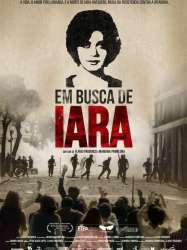I Witnessed Genocide: Inside Sri Lanka's Killing Fields est un film Sri Lankais de genre Documentaire
I Witnessed Genocide: Inside Sri Lanka's Killing Fields (2011)

Si vous aimez ce film, faites-le savoir !
- Infos
- Casting
- Infos techniques
- Photos
- Vidéos
- Passages TV
- Citations
- Personnages
- Musique
- Récompenses
OrigineSri Lanka
Genres Documentaire
I Witnessed Genocide: Inside Sri Lanka's Killing Fields is a 2011 investigative documentary film by Ms. Priyamvatha of the Indian news channel Headlines Today. Ms. Priyamvatha went undercover to the Vanni to report on the survivors of the Sri Lankan Civil War.
The documentary telecasts on-ground interviews with survivors who narrate accounts of sexual abuse in internment camps, the use of chemical and cluster bombs by the Sri Lankan armed forces, killing of thousands of civilians in aerial bombardment and artillery attacks and continued denial of their basic rights.
Priyamvatha received the prestigious "Best investigative news report" award for the documentary, in the 2012 News Television Award in New Delhi. Findings from the documentary were quoted during debates in both houses of India's Parliament and in the Tamil Nadu Assembly.
Bande annonce de I Witnessed Genocide: Inside Sri Lanka's Killing Fields
Bluray, DVD
Streaming / VOD
Commentaires
Postez un commentaire :
Suggestions de films similaires à I Witnessed Genocide: Inside Sri Lanka's Killing Fields
Il y a 8961 ayant les mêmes genres cinématographiques, 14206 films qui ont les mêmes thèmes (dont 7 films qui ont les mêmes 6 thèmes que I Witnessed Genocide: Inside Sri Lanka's Killing Fields), pour avoir au final 70 suggestions de films similaires.Si vous avez aimé I Witnessed Genocide: Inside Sri Lanka's Killing Fields, vous aimerez sûrement les films similaires suivants :

Origine Canada
Genres Documentaire
Thèmes La mer, Transport, Documentaire sur le droit, Documentaire sur la guerre, Documentaire historique, Documentaire sur la politique, Politique, Les dictatures latino-américaines

Em Busca de Iara (2013)
Origine Bresil
Genres Documentaire
Thèmes La mer, Transport, Documentaire sur le droit, Documentaire sur la guerre, Documentaire historique, Documentaire sur la politique, Politique, Les dictatures latino-américaines
Note79%






Sri Lanka's Unfinished War (2013)
, 30minutesOrigine Royaume-uni
Genres Documentaire
Thèmes La mer, Transport, Documentaire sur le droit, Documentaire sur la guerre, Documentaire historique, Documentaire sur une personnalité, Politique

Crayons and Paper (2009)
, 30minutesOrigine Etats-Unis
Genres Documentaire
Thèmes Afrique post-coloniale, L'enfance, La mer, Transport, Documentaire sur le droit, Documentaire sur la guerre, Documentaire historique, Documentaire sur une personnalité, Documentaire sur la politique, Politique

El Salvador: Another Vietnam (1981)
, 53minutesOrigine Etats-Unis
Genres Documentaire
Thèmes La mer, Transport, Documentaire sur le droit, Documentaire sur la guerre, Documentaire historique, Documentaire sur la politique, Politique, Les dictatures latino-américaines
Acteurs Mike Farrell
Note64%






No More Tears Sister (2005)
, 1h18Genres Documentaire
Thèmes La mer, Transport, Documentaire sur le droit, Documentaire sur la guerre, Documentaire historique, Documentaire sur une personnalité, Documentaire sur la politique, Politique
Note66%






Utopia (2013)
, 1h50Réalisé par John Pilger
Genres Documentaire
Thèmes La mer, Transport, Documentaire sur le droit, Documentaire sur la guerre, Documentaire historique, Politique
Acteurs John Pilger
Note76%





The film begins with Pilger's journey to Utopia to observe the changes that have occurred in Aboriginal Australia between 1985, when he featured the poverty in the documentary The Secret Country and the time of filming, 2013. After almost three decades, Pilger discovers that Aboriginal families are still living in extremely overcrowded and poorly sanitized asbestos shacks, and are plagued by easily curable diseases. The Secretary General of Amnesty International, Salil Shetty, who happens to be in Utopia at the same time as Pilger, ponders why one of the world's richest countries cannot solve the problem of Aboriginal poverty and states that the inequity and injustice could be fixed if the will to do so existed. The film goes on to explore some of the issues currently afflicting Australia such as; failed health policies, Aboriginal deaths in police custody, mining companies failing to share the wealth they have acquired with the first Australians and the disputed allegations made by the media and government that there were pedophile rings, petrol warlords and sex slaves in Aboriginal communities and the resulting 2007 intervention. The film also features a visit to Rottnest Island, Western Australia, where an area that was used as a prison for Aboriginal people until 1931, has now been converted into a luxury hotel where tourists are not even informed of the island's brutal history.

Countdown to Ground Zero (2006)
, 1h30Origine Etats-Unis
Genres Documentaire
Thèmes Les attentats du 11 septembre 2001, Religion, Le terrorisme, Transport, Aviation, Documentaire sur le droit, Documentaire sur la guerre, Documentaire historique, Documentaire sur la politique, Documentaire sur la religion, Documentaire sur les technologies, Documentaire sur le terrorisme, Politique, Religion musulmane, Film catastrophe, Film de catastrophe aérienne, Détournement d'avion
Acteurs Robert Neal Marshall
Note60%






Loose Change (2005)
, 1h22Réalisé par Dylan Avery
Origine Etats-Unis
Genres Documentaire
Thèmes Les attentats du 11 septembre 2001, Religion, Le terrorisme, Transport, Aviation, Documentaire sur le droit, Documentaire sur la guerre, Documentaire historique, Documentaire sur la politique, Documentaire sur la religion, Documentaire sur les technologies, Documentaire sur le terrorisme, Politique, Religion musulmane, Dans un avion, Film catastrophe, Film de catastrophe aérienne, Détournement d'avion
Note70%





 , 1h26
, 1h26Origine Etats-Unis
Genres Guerre, Documentaire
Thèmes L'environnement, La mer, Transport, Aviation, Documentaire sur l'environnement, Documentaire sur la guerre, Documentaire historique, Documentaire sur le nucléaire, Documentaire sur les technologies, Politique, Documentaire sur la Seconde Guerre mondiale
Note81%





Les victimes d'Hiroshima et Nagasaki racontent. Les bourreaux aussi.
 Connexion
Connexion